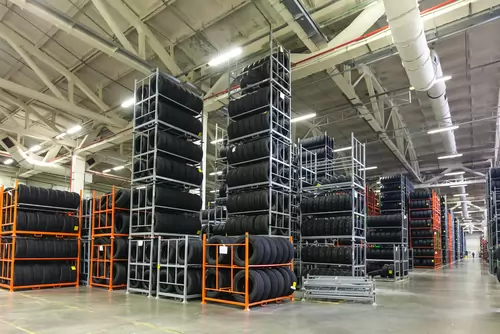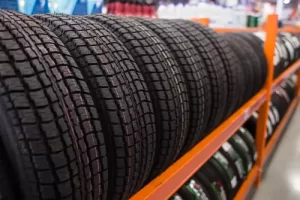
Dos and Don’ts of Warehouse Tire Storage
You need a secure, dependable method of storing tires if you work with them at your warehouse, fulfillment center, logistics business, or dealership. Tires are inventory, nothing more and nothing less, just like any other product in your company. Therefore, you must take all reasonable precautions to limit damage in order to prevent financial loss. The first rule of tire storage is to always employ sturdy, dependable industrial racking solutions to keep delicate items safe.
Do: Clean Tires Beforehand
Despite being a superb material, rubber has numerous drawbacks, chief among which is that it is vulnerable to degradation from moisture and chemicals. Make careful to give worn tires, or even brand-new tires, that have accumulated dust or moisture, a thorough cleaning before mounting them. Having said that, keep in mind that over-washing with any harsh chemicals is also bad for tire rubber; so, use gentle cleaners and avoid vigorous scrubbing or brushing.
Do: Store in a Cool, Dry Place
Make every effort to prevent your tires from being subjected to high temperatures. Although the polymers used in vehicle tires are, of course, made for all-season use, weather changes do have an impact on a tire’s performance and quality. Tire blowouts can be brought on by extreme heat, and changes in the weather can impact the air pressure. When a tire is eventually mounted, moisture that has accumulated on the floor or in a moist environment may harm the steel cables and casings.
Do: Make Minor Repairs
A smart warehouse tire storage system should guarantee that tires are organized so that they are available for usage when needed. In other words, you should be able to deploy tires directly from the rack to the wheel, barring a fast examination and tidy-up. Therefore, you ought to do any small fixes, patches, and hardware upgrades before you store.
Do: Label Sensibly
Your industrial facility’s tire storage system should increase productivity while minimizing hassles and maintaining the condition of your tires. A thoughtful labeling system is one approach to guarantee that workers can quickly obtain the appropriate tires. The majority of businesses use stickers to directly label their tires. Use a vivid color and think about employing barcode technologies so that employees can easily scan to determine what is what.

Don’t: Stack Them Directly on the Floor
Tire storage racks are the ideal solution for storing tires in large quantities and for industrial uses. These systems prevent pressure damage that may happen if tires are hung by hooks, as well as keeping tires off the ground and away from dirt and dampness. Employee retrieval is made simpler and safer by racking unused tires. We strongly advise stacking tires on top of pallets if standard rack storage is not an option to keep them off of soiled or moist flooring.
Don’t: Store Them in Direct Sunlight
Sunlight is another adversary of rubber. Tires, or any rubber product for that matter, should not be exposed to the sun’s rays for an extended period of time as this can result in UV deterioration and rubber heating up, which can lead to irreparable damage. Too much sun exposure can cause problems with tires like ozone-cracking, which results in tiny cracks in the sidewalls or tread grooves of the tire. Add exposure to heat, automobile exhaust, and electric generators to the “don’t” list as they can also cause this kind of harm.
Don’t: Skimp on Safety
Last but not least, it’s critical to make decisions while racking tires that put employee safety first. To avoid slips and falls while staff are removing tires from racks, never place tires on high racks without adequate training and a reliable retrieval mechanism. Make sure to provide anyone handling tires in your facility with heavy-duty work gloves.
Let Us Help
With the help of all of these wonderful suggestions, you can be certain that any tire you take out of storage will be tidy and prepared for mounting. Don’t hesitate to contact Pebdea Global Services if you have any questions or concerns about your warehouse storage needs, including pallets and warehouse containers. Contact Us


0 comments
Write a comment